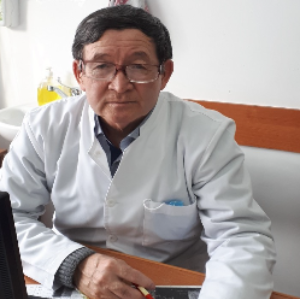Title : 21st century discoveries in the physiology of adaptation and dramatic changes in the validation of substance dependence
Abstract:
The report shows that the current level of physiology does not reveal the biological mechanisms for increasing tolerance in dependence on psychoactive substances. Like, for example, opium (heroin) the addict uses doses repeatedly, almost 10 times, exceeding the lethal for an ordinary person? The traditional explanation of what grows the body's tolerance in response to an increase in dose is insufficient. The research work shows that in the functioning of the endocrine system, in particular the adrenal cortex, which produces "adaptation hormones" glucocorticoids, that increase the body's resistance to strong stimuli, the mechanism of "anticipatory excitation" has been evolutionarily laid down, contributing to accumulation of reserves - described in the 30s of the last century by the physiologist P.K. Anokhin. When on any stimulus, the adrenal cortex, as if in anticipation of possible future high costs. responds with somewhat excessive neurotransmitter release. And due to the excess neurotransmitter release, including auxiliary and tissue and adaptation mechanisms, "takes a break" for its own recovery - trophic processes, when the processes of assimilation begin to prevail over the processes of dissimilation and physiological hypertrophy of the cells of the adrenal cortex occurs. Histological evidence comes from Selye's studies of the stress response: "the adrenal glands bloom." And each subsequent increasing dose of the drug is "met" by the hypertrophied endocrine system. And a potentially extreme lethal dose of a psychoactive substance has a non-lethal, sub-extreme effect on the body. It is known that stress - in its development goes through three stages: "anxiety reaction", resistance, exhaustion. With dependence on psychoactive substances, the hypertrophy of the endocrine system that has occurred in the resistance stage does not allow the development of the final stages - exhaustion and damage to the body is not applied. With an increase in the dose of surfactants, and switching to another range, this process of hypertrophy is repeated. Such a process, with a regular, gradual increase in the acting dose of a psychoactive substance, should be called a state regular, unfinished stress. A new direction in the physiology of adaptation - explains the mechanism of increasing the body's tolerance in dependence on psychoactive substances (PS), it is called progradient (progressive) adaptation. He scientifically proves that the body's dependence on PAS is not a disease, but a state of progressive adaptation.
Audience Take Away Notes:
- The report revolutionizes the scientific understanding of substance dependence.
- The audience will learn that the dependence of the body on PAS is not a disease, but a state of the type of progressive (progressive) adaptation. It will improve the understanding of the psychological state of psychoactive substance addicts by doctors.
- Improve understanding by substance addicts of their condition.
- Will improve rehabilitation work with dependent on chemical psychoactive substances.
- Researchers and educators can use this work to improve their research or teaching.




